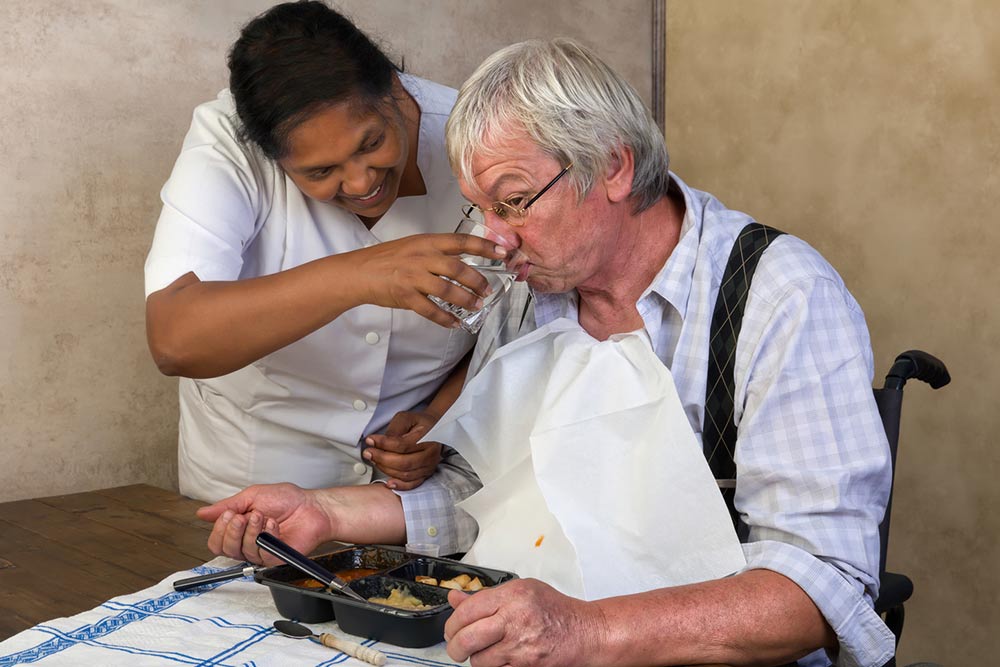Symptoms, Causes, and Management of Parkinson’s Disease
Parkinson’s disease affects a person’s nervous system and other body parts controlled by the nerves. It leads to various symptoms that get worse as time passes. Some of the common indicators include slowed-down movement and stiffness. When patients go to a doctor, the expert recommends treatments and home remedies to manage the condition and slow its progress. In terms of Parkinson’s life expectancy, individuals usually live for 10 to 20 years after getting diagnosed.

Parkinson’s disease symptoms
Healthcare professionals detect Parkinson’s in individuals based on a few typical symptoms, some of which include:
- Slowed movements
Parkinson’s makes mobility much more challenging for people. It affects a person’s reflexes and voluntary motor movements, so they take longer to do the simplest of tasks, such as climbing stairs or walking a few paces. People with this condition also find it hard to get up after sitting down. Further, it is common for someone with Parkinson’s to take shorter steps and drag their feet while they walk. - Tremors
People with Parkinson’s commonly experience tremors, or rhythmic trembling, in their limbs, fingers, and other body parts. Some exhibit a unique type of tremor in which they rub their thumb and forefinger back and forth. It is frequently seen in those with initial-stage Parkinson’s. Generally, trembling gets aggravated when people are at rest rather than when immersed in some task. - Stiffening of the muscles
If the nerve endings on or near someone’s muscles are affected, it causes the muscles to stiffen up and become rigid. This could be seen in any part of the body. Muscle rigidity can be painful and limit the range of movement. - Speech incoherence and monotony
This is arguably the most common symptom visible to the friends and family members of people living with Parkinson’s. One may experience slurring and hesitation while talking and develop a monotone voice. It happens when the condition affects the speech centers in a person’s brain. - Changes in handwriting
Parkinson’s affects people’s motor movements and learning and reading ability. Someone with this condition will likely find it increasingly difficult to hold pens and pencils and write clearly.
Parkinson’s disease causes
There is no definitive cause for Parkinson’s disease. Often, a combination of factors contributes to the problem. While health professionals have observed that this combination tends to vary from patient to patient, a blend of genetics and environmental factors generally leads to Parkinson’s. Certain studies have found that hereditary or genetic factors trigger a fifth of all cases.
Healthcare researchers globally are still trying to zero in on the definitive causes. A breakthrough will help them devise more potent Parkinson’s treatment avenues.
Parkinson’s disease remedies
While Parkinson’s is essentially incurable, certain natural remedies can help improve the quality of life for people living with this condition. Some home and natural remedies include:
- Yoga
Mindfulness and meditation are key to improving the quality of life for those with Parkinson’s. Yoga improves the body’s balance and flexibility and helps restore movement in certain people. Many healthcare experts actively advise patients to practice yoga to enhance their balance, strength, limb flexibility, and overall mobility. Yoga also helps people sleep better and, thereby, combat insomnia, another common symptom of Parkinson’s. - Tai chi
Like yoga, tai chi consists of traditional exercises and mindfulness-based rhythmic breathing techniques to improve individuals’ focus, coordination, and balance. Certain Parkinson’s studies have found that three types of exercises—stretching, resistance training, and tai chi—are the most potent remedies that help those with moderate Parkinson’s balance their bodies and become stable. - Massage therapy
Like yoga and tai chi, massages help people relax and breathe easier without much strain. This helps combat the symptoms of Parkinson’s and makes them less severe. People with this condition can undergo massages to improve the quality of their lives to a large extent.
Apart from massages, tai chi, and yoga, some other Parkinson’s remedies include movement therapies, acupuncture, and eating healthy meals.
Parkinson’s treatment and management options
Here are some of the most tried-and-tested options for treating Parkinson’s that help to reduce the severity of the symptoms:
- Deep brain stimulation
Deep brain stimulation uses an implanted device to deliver a mild electric current to certain brain areas. The current helps regulate the neuron impulses, improves mobility, and reduces perpetual trembling. - Stem cell transplants
Stem cell transplants involve replacing damaged nerves in the brain with dopamine-using neurons. This treatment, like the previous one, helps make movements more stable. - Neuron repair treatment
Neuron damage is a common result of Parkinson’s and the cause of most other symptoms. Neuron repair is a surgical treatment to repair and fix the physiology and functioning of nerves and neurons to get them to work properly again.
Apart from these, gene therapy is a potent alternative treatment. Patients can discuss their symptoms with the doctor to pick the right Parkinson’s management option.